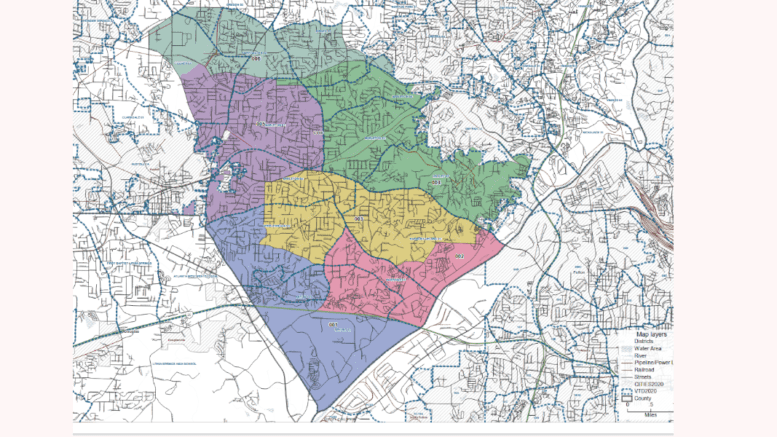By John A. Tures, Professor of Political Science, LaGrange College
One’s a fictional town, and the other just became a reality by a 53%-47% margin. While one grapples with race, the other seems more obsessed with decision rights by residents than any demographic divide or even fragmentation by race or class. Yet the two municipalities of Mableton and Medallion illustrate the complexities, even contradictions, over the politics of annexation and deannexation.
In Toni Morrison’s second novel “Sula,” we are introduced to a fictional town of Medallion, Ohio, where the city is fixing to annex the remains of a hardscrabble but vibrant African-American community known as “The Bottom.” Originally bequeathed by a landowner to a slave as a reward for hard work, the promise of fertile land at the bottom was swapped for higher land in hills, where it’s harder to grow due to soil erosion and the winds keep life at the top from being pleasant. The final irony occurs more than a century later, as Medallion pursues annexation to build a ritzy golf course on that land once deemed worthless by the landowner and town, where blacks were looked down upon even when on higher ground.
“History doesn’t repeat itself,” Mark Twain allegedly wrote. “But it does rhyme.” Just like Mableton and Medallion sound similar. And there may be more factors in common.
This arrangement of contradictions in Morrison’s book don’t seem to be present in Mableton, at least on the surface. I feel I can find members of all kinds of demographics on both sides of the debate, for annexation and for deannexation. The issues appear bereft of the traditional dog whistles of campaigns of yore, and your America today, ranging from crime, water, or whether one has to live with “those people.”
So why is deannexation, secession to some, in vogue? In the old days, annexation was a means to expand the power-base, bringing in more tax revenues. When the population became…more diverse…annexation could dilute the non-white vote, as was the case in Richmond and Nashville and even when Atlanta pulled in Buckhead. You could even argue for cost-savings against duplication when a city and county merged, as did my wife’s town of Jacksonville, Florida.
Deannexation could be counted to sell lands to private developers. Maybe it could be part of white flight, the exodus from the municipality to the suburbs (as some argue is the case with Buckhead). It could cut loose the need to provide services to the poorest areas.
I researched as best I could what the issues would be about. Did one expect better or worse public services? What issue had locals latched on to in order to take the bold step to form a city, or leave the newly-formed municipality? It seemed the issue to annex or deannex itself would be the source of passion.
The issue cuts across racial and party lines. Or does it? Once the decision is made to have the power to declare yourself a part of the city, or a county resident, all kinds of issues flow from there. And a bill proposing to lower the bar for deannexation across the state of Georgia by Rep. Brad Thomas of Holly Springs could lead to all kinds mini-secession movements, motivated by minor issues.
I’ve heard that much of this push for cities to incorporate in Cobb County is because the region shifted from being a GOP bastion to an emerging Democratic Party area, as witnessed by the successes of Raphael Warnock, Stacey Abrams, Joe Biden, and Democrats who prevailed on the Cobb County Board of Commissioners. Deannexation in this case could be a way to rejoin a government expecting Democratic Party levels of service.
A partisan zero-sum game is natural, even expected. But great care needs to be taken that party-based spats don’t devolve into income inequality incitements, or even racial gerrymandering, unless people want this to turn into a tragic tale worthy of a Toni Morrison-style take.
John A. Tures is a professor of political science at LaGrange College in LaGrange, Georgia. His views are his own. He can be reached at jtures@lagrange.edu. His Twitter account is JohnTures2.

